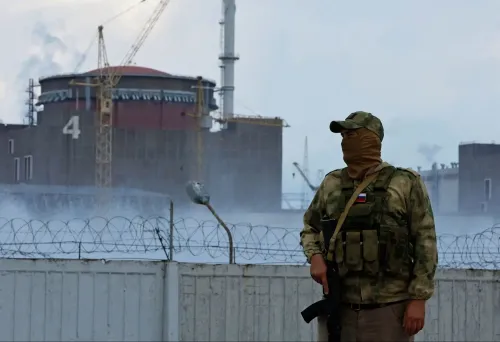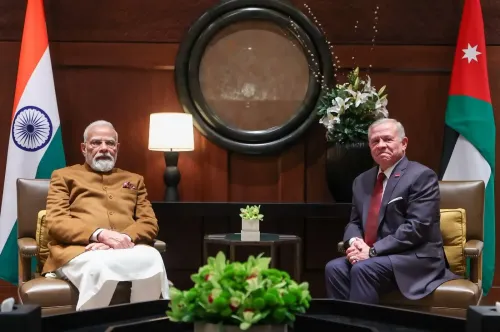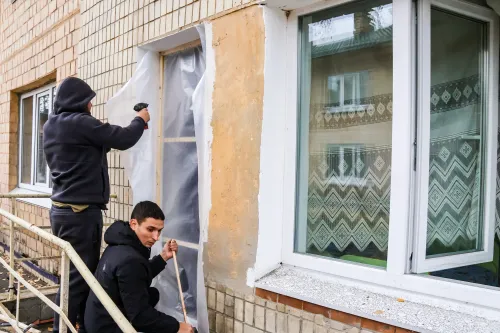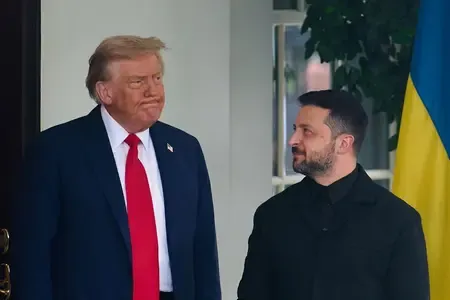Bangladesh's Yunus Government Frees Jailed Islamist Leader Linked to Anti-India Forces
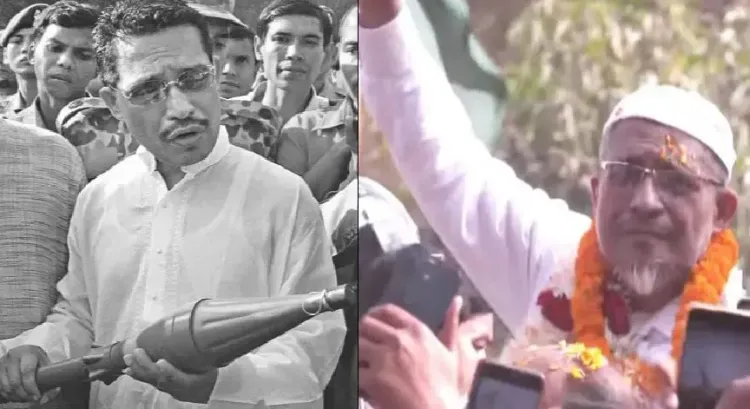
Synopsis
Key Takeaways
- Release of Lutfozzaman Babar raises alarms over security.
- Government's leniency towards Islamist groups becoming apparent.
- Concerns over politicized judiciary in Bangladesh.
- International scrutiny following US rewards for wanted individuals.
- Implications for regional stability in South Asia.
Dhaka, Dec 16 (NationPress) In a surprising decision, the former minister of Bangladesh, Lutfozzaman Babar, who is one of the primary suspects in the arms smuggling case aimed at escalating insurgency in India’s northeastern region, has been released from Dhaka's Central Jail on Thursday. This latest move by the interim government led by Mohammad Yunus has raised concerns among analysts, who believe it will only strengthen radical groups within this troubled nation.
Babar, who held the position of Minister of State for Home in the Bangladesh Nationalist Party (BNP)-Jamaat-e-Islami coalition under Khaleda Zia in 2004, was apprehended in May 2007 for his role in the grenade attack on former Prime Minister Sheikh Hasina and the attempted smuggling of 10 truckloads of weapons destined for the banned militant organization United Liberation Front of Assam (ULFA), which seeks to separate Assam from India.
Initially detained under the Arms Act and the Special Powers Act, he was serving a combination of death and life sentences until the Yunus administration commenced efforts to dismiss charges against him following the downfall of Hasina's government last August.
Last month, Babar and six others had their convictions overturned by the High Court in relation to the Special Powers Act case, while the sentence of ULFA leader Paresh Baruah was commuted from death to life imprisonment.
This decision has drawn severe backlash from various sectors of the Bangladeshi populace, who have labeled it as another “disgraceful act” orchestrated by an “illegitimate government and its puppet judiciary” in a nation where the politicization of justice and rampant lawlessness have become commonplace. Critics argue that the judiciary in Bangladesh has devolved into a mere instrument for protecting the BNP.
“The High Court’s decision to acquit Lutfozzaman Babar and others in the 10-truck arms haul case blatantly ignores substantial evidence linking them to one of South Asia's largest arms smuggling incidents. The weapons were intended for insurgent factions like ULFA and NSCN-IM, posing a severe threat to both national and regional security. This ruling heightens concerns about the vulnerability of security and stability in South Asia, which is at its lowest in decades,” stated Hussain Saddam, President of the Bangladesh Students' League, on X.
This week, Babar was also cleared in the '10-truck arms haul case', effectively eliminating all legal barriers and enabling his release after 17 years.
As Bangladesh descends into turmoil, the Yunus government faces accusations of providing a lenient environment for Islamist factions within the country.
Recent reports suggest that the interim government is also moving to exonerate Syed Zia-ul Haque, a dismissed Major of the Bangladesh Army linked to Al Qaeda and wanted by the United States.
In December 2021, the U.S. Department of State's Diplomatic Security Service offered a reward of up to $5 million for information leading to the capture or conviction of Haque (aka Major Zia) and Akram Hussain, who were involved in a February 2015 terrorist attack in Dhaka that resulted in the death of U.S. citizen Avijit Roy and serious injuries to his wife, Rafida Bonya Ahmed.
Both Bangladesh-born U.S. citizens were in Dhaka to attend a book fair when they were attacked by assailants wielding machetes. Roy succumbed to his injuries while Ahmed survived but with severe wounds.
According to the U.S. State Department, the Ansarullah Bangla Team, an Al Qaeda-linked terrorist organization based in Bangladesh, claimed responsibility for the assault through its Dhaka cell.
Zia, who reportedly escaped to Pakistan afterward, was also wanted by Bangladeshi authorities, which had announced a bounty of Tk 2 million for his capture in 2016 in connection with the murders of Jagriti Prokashon's Foysal Arefin Dipon and Kalabagan's Julhas-Tonoy. He had previously been involved in a failed coup attempt in 2011.
Recently, the policy requiring mandatory security clearance for Pakistani citizens applying for visas was significantly relaxed, facilitating Zia's return to Dhaka using a Pakistani passport.
Reports indicate that immediately upon returning, Zia submitted a formal request for acquittal from all charges and removal from the 'most-wanted' list on December 29, 2024, seeking to annul all convictions and the withdrawal of the bounty.
Interestingly, local news outlets have reported that Justice Mainul Islam Chowdhury, who heads the disappearance committee at the International Crimes Tribunal of Bangladesh (ICT-BD) overseeing this entire matter, is Zia's father-in-law.


